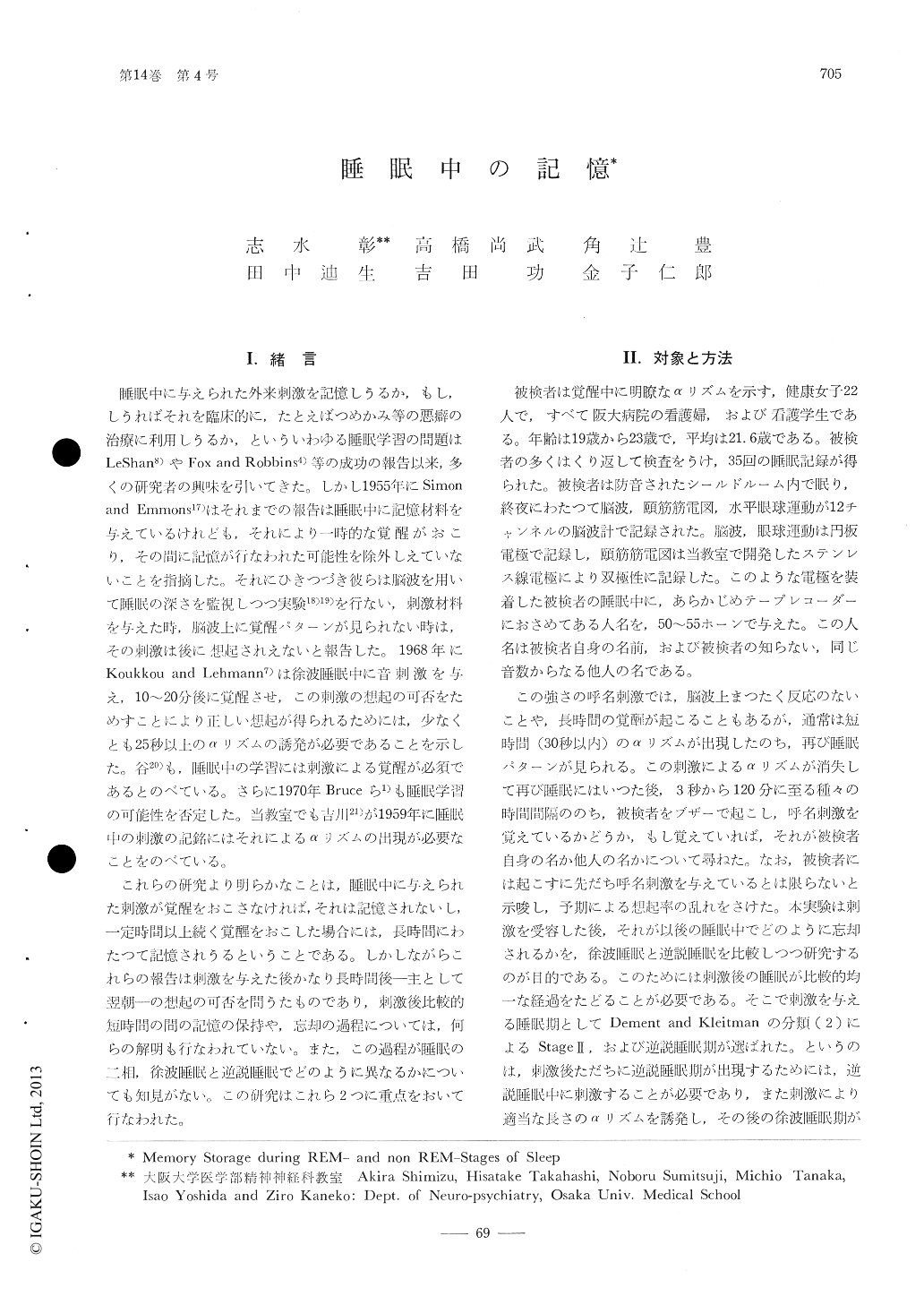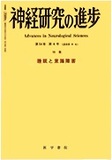Japanese
English
- 有料閲覧
- Abstract 文献概要
- 1ページ目 Look Inside
Ⅰ.緒言
睡眠中に与えられた外来刺激を記憶しうるか,もし,しうればそれを臨床的に,たとえばつめかみ等の悪癖の治療に利用しうるか,といういわゆる睡眠学習の問題はLeShan8)やFox and Robbins4)等の成功の報告以来,多くの研究者の興味を引いてきた。しかし1955年にSimon and Emmons17)はそれまでの報告は睡眠中に記憶材料を与えているけれども,それにより一時的な覚醒がおこり,その間に記憶が行なわれた可能性を除外しえていないことを指摘した。それにひきつづき彼らは脳波を用いて睡眠の深さを監視しつつ実験18)19)を行ない,刺激材料を与えた時,脳波上に覚醒パターンが見られない時は,その刺激は後に想起されえないと報告した。1968年にKoukkou and Lehmann7)は徐波睡眠中に音刺激を与え,10〜20分後に覚醒させ,この刺激の想起の可否をためすことにより正しい想起が得られるためには,少なくとも25秒以上のαリズムの誘発が必要であることを示した。谷20)も,睡眠中の学習には刺激による覚醒が必須であるとのべている。さらに1970年Bruceら1)も睡眠学習の可能性を否定した。当教室でも吉川21)が1959年に睡眠中の刺激の記銘にはそれによるαリズムの出現が必要なことをのべている。
Twenty two normal young females were used. During her sleep, the stimulation of name calling was given. With different intervals after the sti-mulation, she was awakened by the buzzer and was asked if she could recall the stimulation. If α rhythm was not evoked by the stimulation, it was not perceived in most cases. When α rhythm was evoked for more than 1 min, it could be recalled even more than two hours later. When the evoked α rhythm lasted for within 20 sec and the subject slept again, the longer the evoked α rhythm, the longer the memory of the stimulation was retained.

Copyright © 1971, Igaku-Shoin Ltd. All rights reserved.


